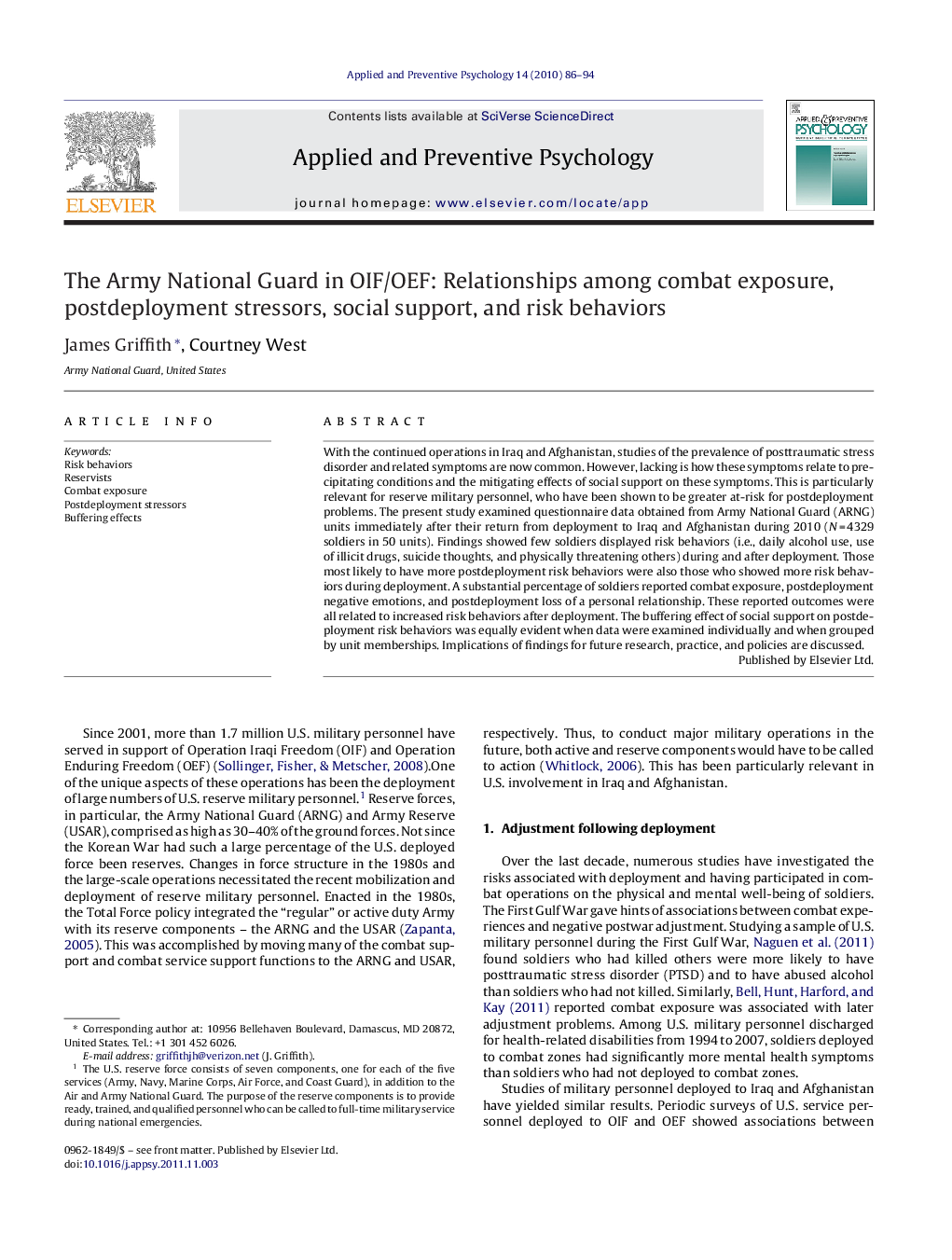| کد مقاله | کد نشریه | سال انتشار | مقاله انگلیسی | نسخه تمام متن |
|---|---|---|---|---|
| 879143 | 1471288 | 2010 | 9 صفحه PDF | دانلود رایگان |

With the continued operations in Iraq and Afghanistan, studies of the prevalence of posttraumatic stress disorder and related symptoms are now common. However, lacking is how these symptoms relate to precipitating conditions and the mitigating effects of social support on these symptoms. This is particularly relevant for reserve military personnel, who have been shown to be greater at-risk for postdeployment problems. The present study examined questionnaire data obtained from Army National Guard (ARNG) units immediately after their return from deployment to Iraq and Afghanistan during 2010 (N = 4329 soldiers in 50 units). Findings showed few soldiers displayed risk behaviors (i.e., daily alcohol use, use of illicit drugs, suicide thoughts, and physically threatening others) during and after deployment. Those most likely to have more postdeployment risk behaviors were also those who showed more risk behaviors during deployment. A substantial percentage of soldiers reported combat exposure, postdeployment negative emotions, and postdeployment loss of a personal relationship. These reported outcomes were all related to increased risk behaviors after deployment. The buffering effect of social support on postdeployment risk behaviors was equally evident when data were examined individually and when grouped by unit memberships. Implications of findings for future research, practice, and policies are discussed.
► The present study examined questionnaire data obtained from Army National Guard (ARNG) units immediately after their return from deployment to Iraq and Afghanistan during 2010 (N = 4329 soldiers in 50 units).
► Findings showed few soldiers displayed risk behaviors (i.e., daily alcohol use, use of illicit drugs, suicide thoughts, and physically threatening others) during and after deployment.
► A substantial percentage reported combat exposure, postdeployment negative emotions, and loss of a personal relationship.
► The buffering effect of social support on postdeployment risk behaviors was equally evident when data were examined individually and when grouped by unit memberships.
Journal: Applied and Preventive Psychology - Volume 14, Issues 1–4, June 2010, Pages 86–94